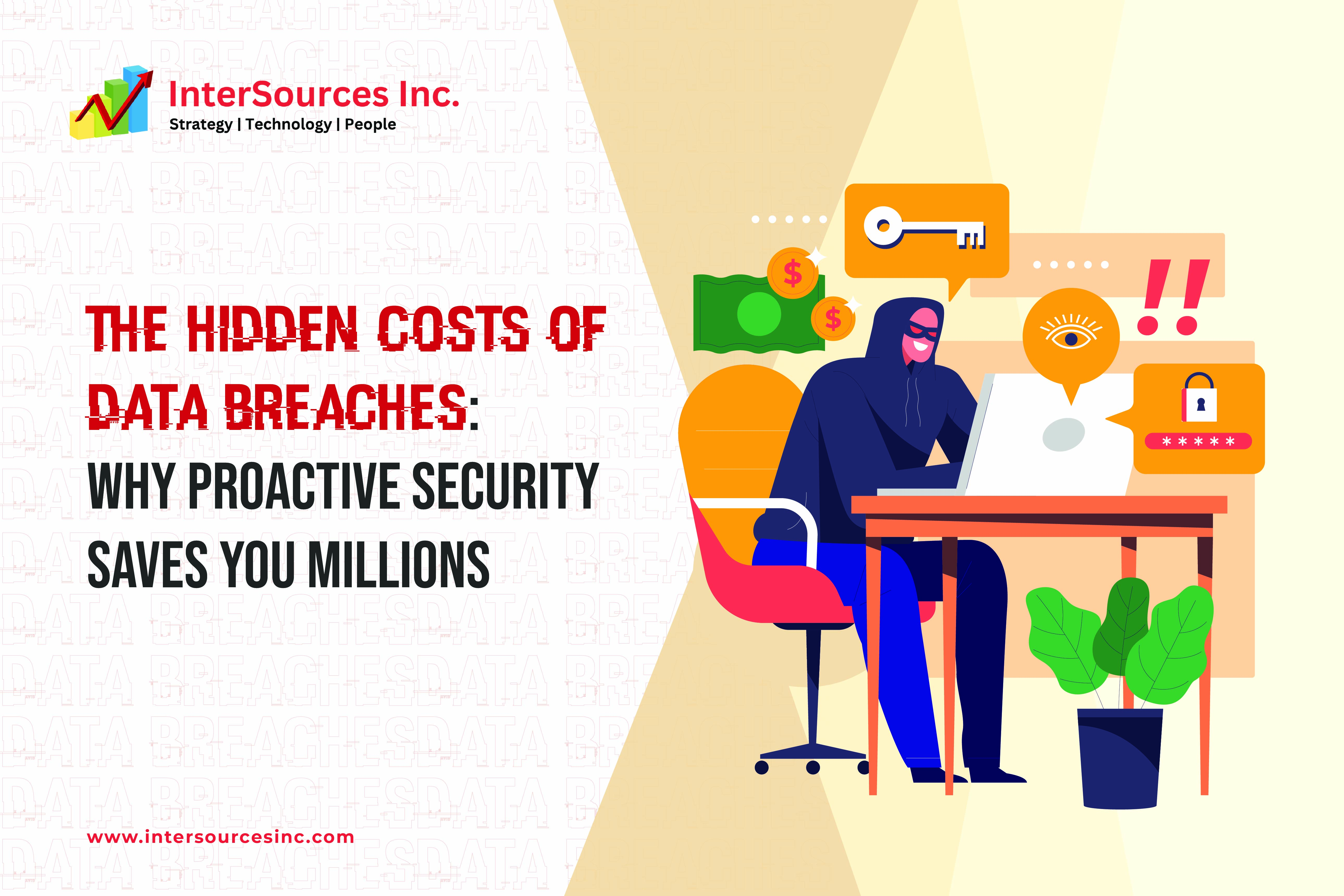
The Hidden Costs of Data Breaches: Why Proactive Security Saves You Millions
This blog delves deeper into the consequences of data breaches, exploring the financial, reputational, and operational damage they can inflict. By acknowledging these risks and implementing robust cybersecurity technologies, you can safeguard your organization's sensitive data and build a more resilient future.
The Cost of a Breach
Data breaches are a harsh reality of the digital age, and understanding their impact goes beyond stolen data. The financial repercussions can be significant, as highlighted in theIBM Security's Cost of a Data Breach Report 2023.The global average cost for a breach reached a staggering USD 4.45 million, a 15% increase over just three years. This cost encompasses both direct and indirect financial burdens.
Direct costs include expenses incurred to investigate the breach, forensics analysis, legal fees, and regulatory fines. Additionally, credit monitoring services for affected customers become necessary. These costs are immediate and quantifiable.
“The true sting, however, often lies in the indirect costs. A breach can disrupt business operations, leading to lost sales and productivity” says our CISO Puneet Bunet.
Rebuilding customer trust requires significant investment in communication and potentially loyalty programs. Furthermore, the negative media coverage that often follows a breach can damage your reputation, making it harder to attract new customers and partners.
Types of Data Breaches and Their Impact
In today's digital age, a data breach isn't a matter of "if" but "when." As business leaders, understanding the different types of breaches and their potential impact is critical for protecting your organization and its stakeholders.
Compromised customer information such as names, addresses, and credit card information falling into the wrong hands. Customers face identity theft and financial fraud. The resulting loss of trust can severely damage customer relationships, impacting brand loyalty and future sales.
Social Security numbers and salaries are highly confidential. A breach can lead to lawsuits from affected employees, straining company finances and morale. Employees worried about their personal information may become disengaged, affecting productivity
Trade secrets and product designs are a company's lifeblood. If stolen, competitors gain an unfair advantage, impacting profitability and innovation.
Regulatory Landscape and Compliance
The data privacy landscape is constantly shifting, with regulations like GDPR and CCPA impacting how businesses handle customer information. A recent study found that74% of CEOs are concerned about the growing complexity of data privacy regulations.Non- compliance can be costly. The GDPR, for example, allows for fines of up to€20 million or 4% of annual turnover
The bigger risk, however, is reputational damage. Consumers are increasingly privacy- conscious, and a data breach can erode trust rapidly. Building a culture of data security is however essential. Here's how to get started:
Understand which regulations impact your business and their specific requirements.
Implement clear policies for data collection, storage, and access.
Educate employees on data privacy best practices to minimize human error .
Proactive Measures to Prevent Breaches
| Technology | Description |
|---|---|
| Firewalls & Data Encryption | ● Firewalls: First line of defense, filtering traffic to block unauthorized access. ● Data Encryption: Scrambles sensitive information for protection even if intercepted. |
| Impenetrable Passwords & Multi-Factor Authentication (MFA) | ● Strong password policies requiring complex, unique passwords. ● MFA adds an extra verification step beyond just a password. |
| Vulnerability Assessments & Penetration Testing | ● Regular assessments to identify vulnerabilities in systems. ● Penetration testing simulates attacks to find weaknesses before they are exploited. |
| Incident Response & Notification Plan | ● Predefined steps for responding to a security breach. ● Includes containment, eradication, and communication protocols. |
The Financial Benefits of a Proactive Cybersecurity Approach
The financial benefits of taking a proactive approach to cybersecurity are undeniable. Organizations that havefully deployed security AI and automation experience breaches that cost a staggering $3.05 million less,on average, compared to those without these advanced defenses. That's a 65.2% reduction in breach costs – a powerful argument for investing in AI-powered cybersecurity solutions.
Here's why a proactive approach with AI and automation can significantly reduce financial losses :
Proactive measures like AI-powered threat detection and automated incident response can identify and stop attacks before they cause significant damage. This minimizes downtime, data loss, and the need for expensive remediation efforts.
Compliance with data protection regulations often requires organizations to have robust cybersecurity measures in place. Proactive AI-powered solutions can help automate compliance tasks and ensure continuous monitoring, reducing the risk of fines and penalties.
Data breaches can severely damage an organization's reputation. Proactive cybersecurity demonstrates a commitment to protecting customer data, fostering trust and loyalty.
In addition to the above, the other potential financial benefits of a proactive cybersecurity approach are
Proactive security measures can help to prevent cyberattacks that can take down systems and disrupt operations. This can save businesses money in lost productivity and revenue.
Lower insurance premiums Some insurers offer discounts to businesses with strong cybersecurity practices.
When employees know that their data is secure, they can be more productive and focused on their work.
Also Read
AI and Automation: The Dynamic Duo for Cybersecurity ROI Enhancement
Conclusion
Data breaches are a constant threat, but their impact can be mitigated. By understanding the risks and taking proactive measures, you can safeguard your business. Traditional security solutions have limitations. For a truly resilient future, explore ourAI-powered cybersecurity solutions.These can significantly reduce breach costs, improve compliance, and enhance your brand reputation.
Don't wait for a breach to take action. Invest in AI-powered cybersecurity today!
